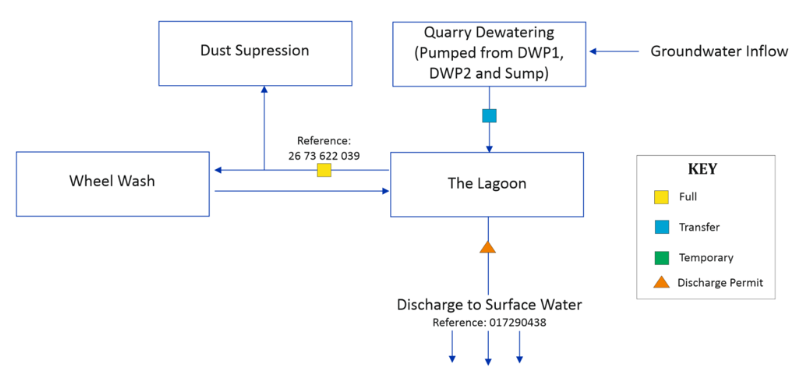Reflecting on the 2023 Mineral Planning Conference
Last month, Envireau Water Director, James Dodds and Principal Hydrogeologist, Deborah Thomas attended the Mineral Planning Conference jointly delivered by The Royal Town Planning Institute and Mineral Products Association.
The one-day event focussed on Mineral Planning at a Crossroads, with presentations covering the UK government's Critical Minerals Strategy pitfalls, key issues for mineral planners, the impact of climate change on mineral development, planning reforms, and the legal perils arising from recent mineral planning appeals.
Envireau Water was delighted to sponsor the Environment & Heritage plenary and attend the event alongside our fellow RSK Group company, Stephenson Halliday. During the plenary, James gave a presentation on how new abstraction licensing rules relating to quarry dewatering link to planning applications, how to avoid duplication of effort and how mineral planners estate managers can lead the process.
If you were unlucky not to have attended the event, we asked James four key questions about his presentation to ensure you don't miss out on his expert advice!
Abstraction Licensing – Project Blocker or Project Maker?
Q1) Can you tell our readers what was the focus of your presentation and who it's important to?
My presentation explored the abstraction licensing process, the key pitfalls, and the timescales involved.
II also examined the similarities between the licensing and planning application processes and how mineral estate teams and planning consultants can help themselves.
While the technical elements of the application are different, planning and estates teams are familiar with multidisciplinary applications, and the link between regulators and the company operational teams.
Q2) Can you tell us more about the licensing and technical processes?
In essence, In essence, the licensing process is similar to a planning application. However, the key difference is that the decision is based on facts rather than balance. As such, the information submitted must be framed in a factual way.
While water related aspects are covered in a planning application and an EIA, an abstraction licence application is more focusssed and specific. It is however important to make sure that the application ticks thye necessary regulatory boxes.
Q3) Who should be doing it?
Envireau Water, obviously! But seriously, while technical input is needed, planning and estate specialists are well placed to draw the various technical elements together. A critical input must come from company operational teams. They must define what is or will happen on the ground, with respect to water management, pumping and transfer in detail (See Figure 1 for an example).
Q4) You have over 35 years of experience in the water management and water resources hydrogeology of mines and quarries; what are your top tips?
- KISS (Keep it simple stupid).
- Collect data. Data is evidence.
- It is real, the science is supporting operations, and the ops team must engage.
- Recognise the timeline. It takes time (sometimes a long time) to collect evidence and for applications to be determined.
- You can't do it until they say you can; and shouting ‘But I need it NOW’ isn’t going to work.
Are you at crossroads? Our minerals team has the expertise to set you on the right path to obtaining an abstraction licence. In the first instance, contact Deborah Thomas on 01332 871 870 or email Deborah@envireauwater.co.uk.








